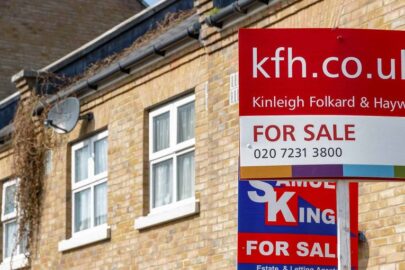The UK housing market ended 2018 on a weak note with uncertainty still biting, alongside continuing lack of stock and affordability issues, according to the December 2018 UK Residential Market Survey.
Key activity indicators continued to slip in December with sales volumes dwindling, although beneath this national headline figure some areas of the UK saw a more positive trend (East Anglia, Wales, the North East and Northern Ireland).
Moving forward, however, over the next three months sales expectations are now either flat or negative across the UK. The headline net balance of -28% represents the poorest reading since the series was formed in 1999. The 12-month outlook is a little more upbeat, suggesting that some of the near-term pessimism is linked to the lack of clarity around what form of departure the UK might make from the EU in March.
In terms of prices, the headline indicator slipped slightly deeper into negative territory during December, falling to -19% from -11% in November. This marks the fourth consecutive negative reading. Nevertheless, the UK-wide measure is still masking regional differences.
Looking ahead, the 12-month outlook for prices remains broadly flat. With the exception of London and the South East, prices are anticipated to either rise or hold steady across the other UK regions over 2019.
Domestic issues related to lack of supply and affordability also continue to affect the market, with stock levels and buyer interest declining further in December. New buyer enquiries fell for a fifth month in succession, (net balance -17% compared to -20% in November). This decline in demand from buyers matched the deterioration in new instructions, which have now remained in negative territory for the last six months and have declined in 19 of the previous 24 months.
This means that stock levels on estate agents books remain close to record lows, currently standing at an average of just 42 properties per branch.
In addition, supply issues also remain evident in the lettings market, as landlord instructions also declined once again, rounding off a year in which they have fallen in all 12 months.
Simon Rubinsohn, RICS’ chief economist, said: “It is hardly a surprise with ongoing uncertainty about the path to Brexit dominating the news agenda, that even allowing for the normal patterns around the Christmas holidays, buyer interest in purchasing property in December was subdued.
“This is also very clearly reflected in a worsening trend in near term sales expectations. Looking a little further out, there is some comfort provided by the suggestion that transactions nationally should stabilise as some of the fog lifts, but that moment feels a way off for many respondents to the survey.
“Meanwhile it is hard to see developers stepping up the supply pipeline in this environment. Getting to the government’s 300,000 building target was never going to be easy but pushing up to anywhere near this figure will require significantly greater input from other delivery channels including local authorities taking advantage of their new-found freedom.”
David Pidgeon, surveyor at Nottingham based Portland Surveys, added: “Brexit will now take hold, affecting the public’s confidence in all areas. I think that this will ramp up sharply in March and have a knock-on effect into the summer depending upon the (totally unpredictable) outcome.”
